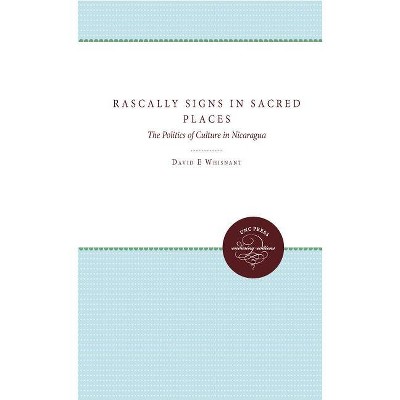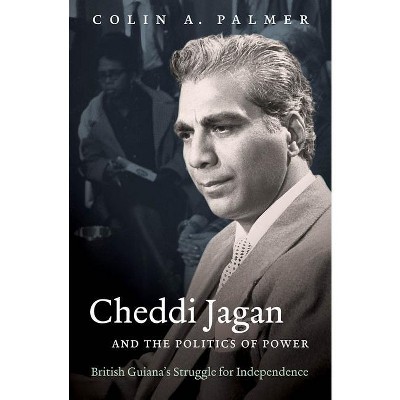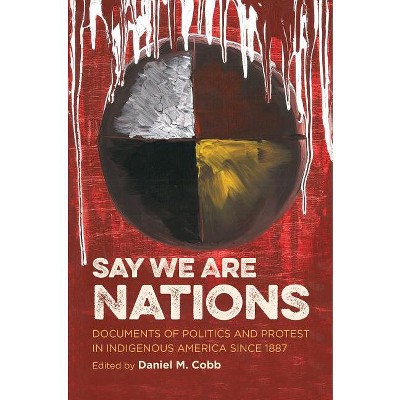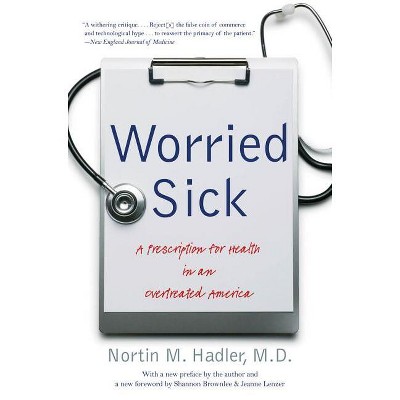Sponsored

Meaning Over Memory - (H. Eugene and Lillian Youngs Lehman) by Peter N Stearns (Paperback)
In Stock
Sponsored
About this item
Highlights
- In the midst of the heated battles swirling around American humanities education, Peter Stearns offers a reconsideration not of what we teach but of why and how we teach it.
- About the Author: Peter N. Stearns is Heinz Professor of History and dean of the College of Humanities and Social Sciences at Carnegie Mellon University.
- 270 Pages
- History, Study & Teaching
- Series Name: H. Eugene and Lillian Youngs Lehman
Description
About the Book
Meaning Over Memory: Recasting the Teaching of Culture and HistoryBook Synopsis
In the midst of the heated battles swirling around American humanities education, Peter Stearns offers a reconsideration not of what we teach but of why and how we teach it. A humanities program, says Stearns, should teach students not just memorized facts but analytical skills that are vital for a critically informed citizenry. He urges the use of innovative research as the basis of such a curriculum, and he offers specific suggestions on translating curriculum goals into courses that can be taught alongside or instead of the more conventional staples.From the Back Cover
In the midst of the heated battles swirling around American humanities education, Peter Stearns offers a reconsideration not only of what we teach but also of why and how we teach it. While conservatives defend a museum-like humanities curriculum, their opponents argue for opening the canon to the works and lives of women and minorities. This approach, Stearns cautions, risks substituting one memorized content for another. Stearns suggests an alternative strategy; one that overlaps with some of the radicals' goals but moves on to a more ambitious reassessment of what the humanities should convey to students. Such a humanities program, says Stearns, should teach students not just memorized facts but analytical skills that are vital for a critically informed citizenry. "In dealing with the current furor over conventional humanistic coverage versus multiculturalism", Stearns says, "I join a few other recent observers in offering intermediate positions and certainly in rejecting the extremes urged from both sides". But, he adds, "My goals are more radical than the radicals' in that I seek to reshape the discussion of the humanities by moving away from debates about which groups it would privilege - essentially a turf fight, however recondite its phrasing - and toward a determination of what kinds of analyses it should further. I aim for a real transformation of humanities education in light of the kinds of analytical perspectives - the habits of the mind - it should inculcate. Teaching in the humanities should above all foster a critical imagination - and this point is not recognized in most of the current debates". Stearns urges the use of innovative research as the basis of the humanitiescurriculum, following the practice of scientific disciplines. He offers specific suggestions on translating curriculum goals into courses that can be taught alongside or instead of the more conventional staples. It is important, Stearns concludes, to use the current spirit of rancor constructively to build a solid educational structure, one that rests on humanities scholarship but aims to help students better understand the nature of human culture and social behavior.Review Quotes
This book demands a wide, national audience; it should be a spark for productive critical debate, and ultimately for reform.
Robert Blackey, coauthor of "Revolution and the Revolutionary Ideal"
"This book demands a wide, national audience; it should be a spark for productive critical debate, and ultimately for reform.
Robert Blackey, coauthor of "Revolution and the Revolutionary Ideal""
A scholarly but accessible and thoughtful contribution to the ongoing debate on alternative futures for humanities education.
"Booklist"
A significant and provocative argument about a topic of current interest and enduring import.
"Choice"
About the Author
Peter N. Stearns is Heinz Professor of History and dean of the College of Humanities and Social Sciences at Carnegie Mellon University. His many books include European Society in Upheaval and Jealousy: The Evolution of an Emotion in American History.











